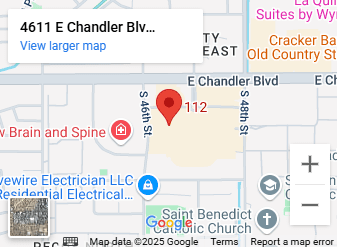
What Is a BusinessBroker?
In the dynamic landscape of business transactions, a businessbroker plays a crucial role as a professional intermediary dedicated to facilitating the sale or acquisition of companies. Business brokers bridge the gap between buyers and sellers, ensuring that deals are executed smoothly and confidentially. They bring marketknowledge, negotiation expertise, and financial acumen to help small and mid-market companies navigate complex transactions efficiently and discreetly. As deals become more intricate with evolving regulations, the expertise of a qualified businessbroker is indispensable for achieving optimal value and protecting the interests of all parties involved. mergers and acquisitions
This article provides a comprehensive analysis of the professional businessbroker, exploring their role, services, benefits, compensation structures, and guidelines for selecting the right broker. By the end, business owners, investors, and entrepreneurs will understand why engaging a business brokerage is a strategic decision when buying or mergers and acquisitions a company.
Transitioning into the detailed discussion, the following sections cover key aspects that define a businessbroker’s function, the spectrum of services they provide, and guidance on selecting the right broker to ensure mergers and acquisitions success.
Defining the Professional BusinessBroker
A businessbroker is a specialized intermediary who facilitates business sales by linking prospective buyers with sellers. They ensure transactions are completed successfully through careful planning, thorough valuation, and professional negotiation.
The Intermediary Role in Business Transactions
A businessbroker coordinates all aspects of a transaction—from initial discussions through closing. This includes preparing a business for sale, confidentially marketing it to targeted prospects, and screening potential buyers. Brokers often require non-disclosure agreements to protect information during negotiations. Their structured and professional process minimizes disruptions and addresses complex issues that can arise, ensuring both buyers and sellers achieve the best possible outcome through mergers and acquisitions.
Distinguishing a BusinessBroker From Other Advisors
Unlike lawyers, financial advisors, or consultants, a businessbroker is solely focused on facilitating business sales or purchases. While other professionals provide regulatory and financial guidance, brokers act as matchmakers and negotiators. Their deep market insights and extensive networks of potential buyers and sellers distinguish them from generic business advisors and allow them to manage aspects such as valuation, marketing, buyer qualification, and negotiations with precision.
Typical Profile of a Qualified BusinessBroker
Qualified business brokers generally have a background in finance or business, complemented by hands-on experience in sales and marketing. They often hold professional certifications and follow strict ethical guidelines. Strong analytical skills, effective communication, and an understanding of market trends are hallmarks of their profile. Many have experience in business valuation or corporate finance, making them adept at handling complex transactions and matching buyers with sellers.
Ethical Standards Upheld by a BusinessBroker
Ethical conduct is vital for business brokers. They maintain confidentiality, disclose any conflicts of interest, and ensure transparency throughout negotiations. By adhering to strict ethical standards, brokers protect their reputation and the interests of every party. This commitment to integrity is critical to maintaining client confidence and ensuring that multi-million-dollar deals are handled fairly.
Core Services Provided by a BusinessBroker
Business brokers offer a range of essential services that streamline the process of buying or selling a business. Their expertise is especially valuable for owners who lack direct experience and need professional guidance at every stage of a business valuation .
Assisting Sellers With Business Valuation
One primary service is determining the fair market value of a business. Brokers conduct a detailed analysis of financial statements, revenue trends, market position, and the competitive landscape. By evaluating metrics such as net income, cash flow, and business valuation , they help sellers set a competitive asking price that attracts serious buyers while maximizing returns. This process often incorporates industry benchmarks and financial modeling to support successful negotiations.
Marketing Businesses Confidentially to Prospects
Confidential marketing is another key service. Brokers protect sensitive information to prevent market disruption that might arise if competitors or employees become aware of a pending sale. They use discreet strategies including targeted outreach, specialized databases, and industry publications. Maintaining confidentiality preserves the business’s reputation and operational integrity, ensuring that only qualified buyers receive critical details related to mergers and acquisitions .
Qualifying Potential Buyers for a Business
To save time and resources, brokers rigorously screen potential buyers. They assess financial capacity, relevant businessexperience, and overall suitability to assume ownership. This careful qualification process limits interactions to buyers who show genuine intent and have the necessary financial backing, thereby streamlining the process and increasing business valuation efficiency.
Facilitating Negotiations and Due Diligence Processes
Business brokers act as skilled negotiators, bridging gaps between buyer and seller expectations. They facilitate discussions and help reach mutually beneficial terms. In addition, they coordinate the due diligence process by managing the exchange of information and documentation, arranging site visits, and preparing business valuation reports. This methodical oversight builds trust and reduces unexpected issues that could otherwise derail the deal.
Guiding the BusinessTransaction to a Successful Close
Finally, brokers oversee the entire closing process. They manage timelines, ensure that all contractual obligations are met, and complete necessary documentation. Remaining engaged until finalization, brokers also provide post-sale support. Their ability to handle regulatory, financial, or interpersonal obstacles is key to achieving a smooth and efficient corporate social responsibility , ensuring maximum satisfaction for both parties.
Advantages of Engaging a BusinessBroker
Engaging a businessbroker offers numerous advantages that simplify the process of selling or purchasing a business. Instead of relying solely on personal efforts, business owners benefit from the broker’s expertise, network, and ability to negotiate effectively.
In the realm of mergers and acquisitions , this expertise becomes even more crucial, serving as a bridge to connect sellers and buyers efficiently.
Accessing a Wider Network of Buyers or Opportunities
A major advantage is access to an extensive network of qualified buyers. Brokers maintain comprehensive databases filled with investors, private equity firms, and strategic buyers. Leveraging this network significantly increases the chances of a quick, successful sale and also brings exclusive opportunities to buyers, enhancing competitive offers on the table.
Maintaining Confidentiality Throughout the Sale Process
Confidentiality is critical to protect a company’s operations. Business brokers use secure communication channels and non-disclosure agreements to ensure that sensitive information remains protected until the appropriate stage of the mergers and acquisitions . This careful handling prevents negative impacts on employee morale, supplier relations, and customer confidence, thereby preserving the business‘s value.
Achieving Optimal Transaction Value for Your Business
Brokers are experts at maximizing the sale price. Through rigorous analysis, they establish competitive asking prices that reflect a business’s true market value. Their negotiation skills help secure better final prices, structure deals that optimize tax benefits and cash flow, and ultimately enhance the overall financial outcome for sellers and business valuation .
Saving Time and Reducing Stress for Business Owners
Selling a business can be time consuming and stressful. By outsourcing the process to a broker, business owners can focus on day-to-day operations while the broker takes care of marketing, negotiations, and business valuation . This delegation not only saves time but also reduces stress, ensuring a smoother and more efficient transaction.
Overcoming Complex Transactional Obstacles With a BusinessBroker
Transactions can face regulatory hurdles, valuation disputes, or negotiation deadlocks. A seasoned businessbroker is equipped to manage these challenges effectively. Their expertise and problem-solving strategies often turn potential deal-breakers into manageable issues, paving the way for successful closings.
Understanding BusinessBroker Compensation Structures
Understanding how business brokers are compensated is important for both buyers and sellers. Compensation can vary based on factors such as deal size, complexity, and the broker’s experience. Familiarity with these structures helps parties set expectations and budget appropriately, particularly in mergers and acquisitions .
Common Commission Models for BusinessBrokerServices
Most business brokers earn a success fee, receiving a percentage of the final sale price only upon completion. This fee typically ranges from 8% to 12% depending on the deal’s size and industry. Some brokers also use a tiered commission model where a higher sale price results in a lower overall percentage, aligning the broker’s incentive with that of the seller in mergers and acquisitions .
Explaining Retainer Fees and Other Potential Charges
In some cases, brokers require an upfront retainer fee to cover initial expenses such as marketing and valuation. Retainer fees are generally non-refundable and may be supplemented by charges for detailed market analysis, legal coordination, or other specialized business brokerage services. Clear communication about these fees ensures transparency and helps avoid surprises later.
Factors That Influence a BusinessBroker‘s Fee
Key factors influencing fees include the business’s size and complexity, the broker’s reputation and track record, and industry-specific nuances. Mergers and acquisitions conditions, transaction duration, and the costs associated with due diligence further impact the final fee. Sellers are advised to obtain detailed fee breakdowns and discuss terms in advance.
Clarifying Fee Agreements Before Engaging a BusinessBroker
Before engaging a broker, it is critical to have a detailed fee agreement in place. This agreement should specify the commission rate, retainer, and any other charges that might apply. Clarifying these terms upfront helps align expectations and protects both parties, ensuring a smoother transaction process.
Selecting the Right BusinessBroker for Your Needs
Choosing the right businessbroker is crucial for a successful transaction. Business owners need to carefully evaluate candidates based on experience, industry specialization, and client feedback, among other factors.
Assessing a BusinessBroker‘s Experience and Sales Record
Experience and a proven sales record are key indicators of a broker’s capability. Sellers should review the broker’s history of closed deals, transaction values, and client outcomes. Documentation such as case studies, certifications, and a portfolio of completed transactions can provide valuable insights into the business brokers ’s effectiveness.
Verifying Industry Specialization of the BusinessBroker
Industry specialization is important because brokers who focus on a particular sector—such as mergers and acquisitions , franchising, or technology—understand its unique challenges and opportunities. Specialized brokers typically have tailored buyer networks and a deeper business valuation insight, increasing the likelihood of achieving maximum value.
Checking Client References and Testimonials for a BusinessBroker
Client references and testimonials offer insights into a broker’s performance. Positive feedback, success stories, and high client satisfaction ratings are strong indicators of a broker’s reliability and effectiveness. Such independent validations help build trust and guide sellers in their selection.
Understanding the Marketing Strategies of a BusinessBroker
An effective marketing strategy is essential for a successful sale. Sellers should assess the broker’s methods for reaching potential buyers, including digital marketing, industry contacts, and proprietary databases. A robust and discreet marketing plan helps maximize exposure while maintaining confidentiality.
Ensuring Personal Compatibility With Your Chosen BusinessBroker
Finally, personal compatibility is essential. A broker who communicates effectively and aligns with the seller’s values can make the process smoother and more agreeable. Early meetings and discussions help determine if the broker’s working style meets the seller’s expectations, reducing the risk of misunderstandings.
When to Utilize the Expertise of a BusinessBroker
Deciding when to engage a businessbroker is as critical as understanding their services. Brokers are best utilized when specialized expertise and a professional network are needed to navigate complex mergers and acquisitions transactions.
Selling Your Privately Owned Company
For privately owned companies, selling can be both emotionally and financially challenging. Business brokers provide the necessary expertise to market the company effectively and secure an optimal price. By sharing sensitive details only with pre-qualified buyers under strict confidentiality, brokers protect business valuation during the sale process.
Acquiring an Existing Business Entity
Buyers benefit from broker expertise when acquiring a business. Brokers help identify opportunities that match investment criteria and provide insight into the financial and operational health of a target company. Their extensive network opens doors to deals not readily available through public channels and aids in managing due diligence and final negotiations.
Needing a Confidential Business Sale Process
Confidentiality is often paramount, especially when public disclosure could harm employee morale or competitive positioning. Brokers ensure that all communication is discreet, using non-disclosure agreements and targeted outreach so that only serious and qualified buyers receive essential business valuation .
Lacking Direct Experience in Business Transactions
For both sellers and buyers new to the process, a businessbroker offers invaluable guidance. Their expertise in business valuation , negotiations, and closing helps overcome challenges associated with inexperience, thereby smoothing the transaction and reducing the risk of pitfalls.
Aiming to Maximize Your Business‘s Sale Price With a BusinessBroker
Ultimately, many business owners aim to secure the highest sale price possible. Brokers leverage detailed market analyses, industry relationships, and negotiation skills to drive competitive bidding. This focus on maximizing transaction value makes engaging a broker a strategic investment in the owner’s financial future.
Frequently Asked Questions
Q: What qualifications should I look for in a business broker? A: Business brokers should have extensive experience in mergers and acquisitions, a proven sales record, and relevant certifications. Look for brokers who specialize in your industry and have strong client testimonials. Their ability to navigate complex transactions and maintain confidentiality is paramount for a successful deal.
Q: How are business broker fees typically structured? A: Fees are generally based on a percentage of the final sale price (typically between 8% and 12%), sometimes supplemented by retainer fees or additional charges for specialized services. The exact fee depends on the size, complexity, and industry of the business, so it is important to clarify all business brokerage firms upfront.
Q: Can a business broker help me even if I have not sold a business before? A: Yes, business brokers are experienced in working with first-time sellers. They guide clients through every step, from valuation and marketing to negotiations and closing, ensuring that those new to the process receive the support they need.
Q: How does confidentiality factor into a business sale process? A: Confidentiality is critical to protect the business from disruptions. Brokers use non-disclosure agreements and discreet marketing strategies so that sensitive information is shared only with serious, pre-qualified buyers, thus safeguarding operational stability in mergers and acquisitions.
Q: What are the benefits of using a business broker compared to selling directly? A: A business broker offers market expertise, broader buyer networks, and professional negotiation skills. They secure the best possible sale price while saving time and reducing stress, effectively managing complexities that may arise during a direct sale.
Q: When is the ideal time to engage a business broker? A: Engaging a business broker is ideal when selling a privately owned company, acquiring an existing business, or when confidentiality and professional negotiation are crucial. Even without prior transaction experience, a broker can streamline and enhance the overall process, particularly in mergers and acquisitions.
Q: How long does the typical transaction process take with a business broker? A: Depending on deal complexity, market conditions, and due diligence, transactions can take several months to over a year. A broker’s strategic guidance is key to navigating this timeline efficiently in mergers and acquisitions.
Final Thoughts
In summary, a businessbroker acts as a vital intermediary in business transactions, offering specialized expertise that enhances efficiency and outcomes. Their comprehensive services—from valuation and confidential marketing to buyer qualification and closing—provide essential support to buyers and sellers alike. Engaging a qualified businessbroker not only maximizes sale value but also ensures a smooth, stress-free process. Whether selling a privately owned company or acquiring an established business, leveraging a mergers and acquisitions ’s expertise paves the way for a successful, rewarding transaction.




